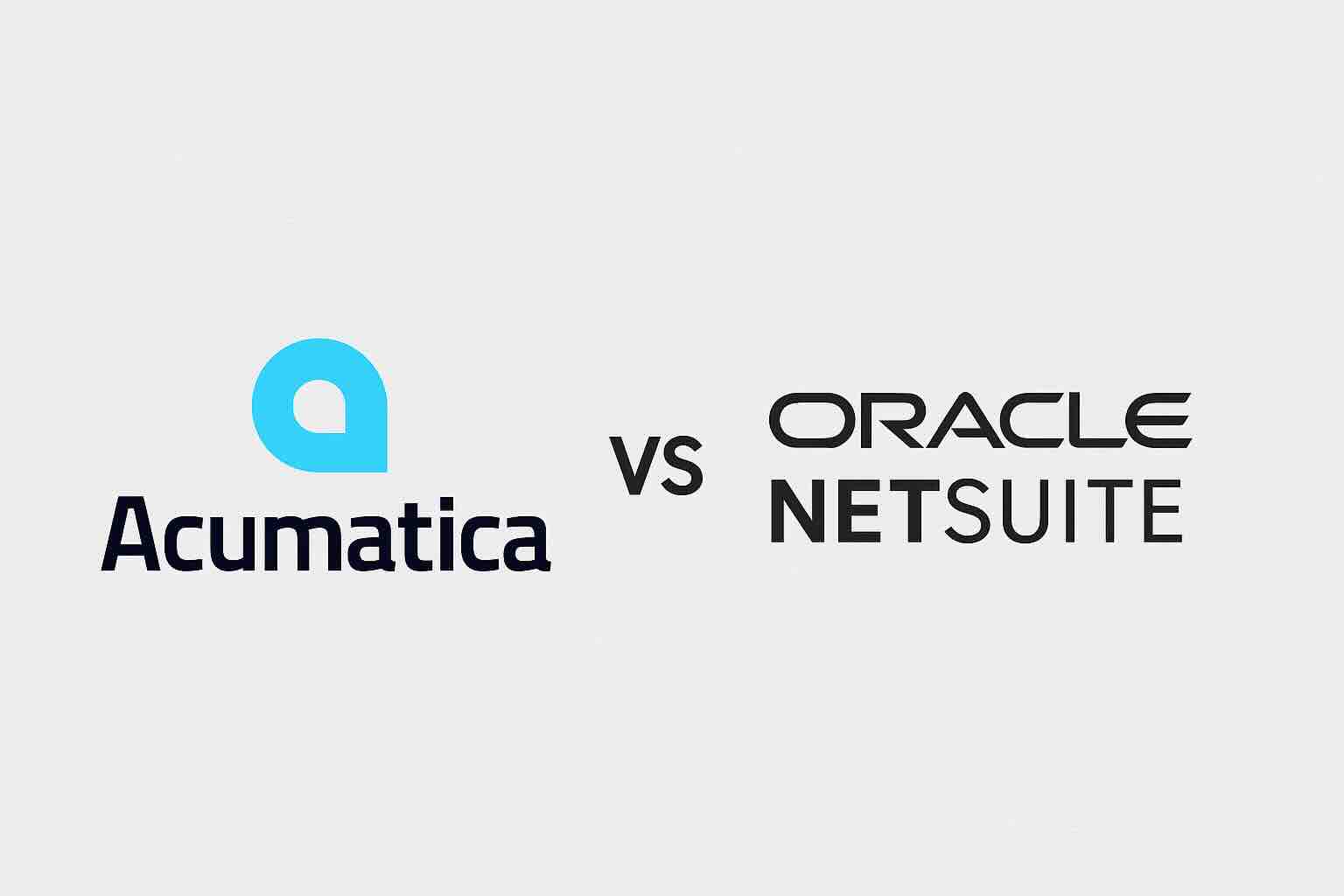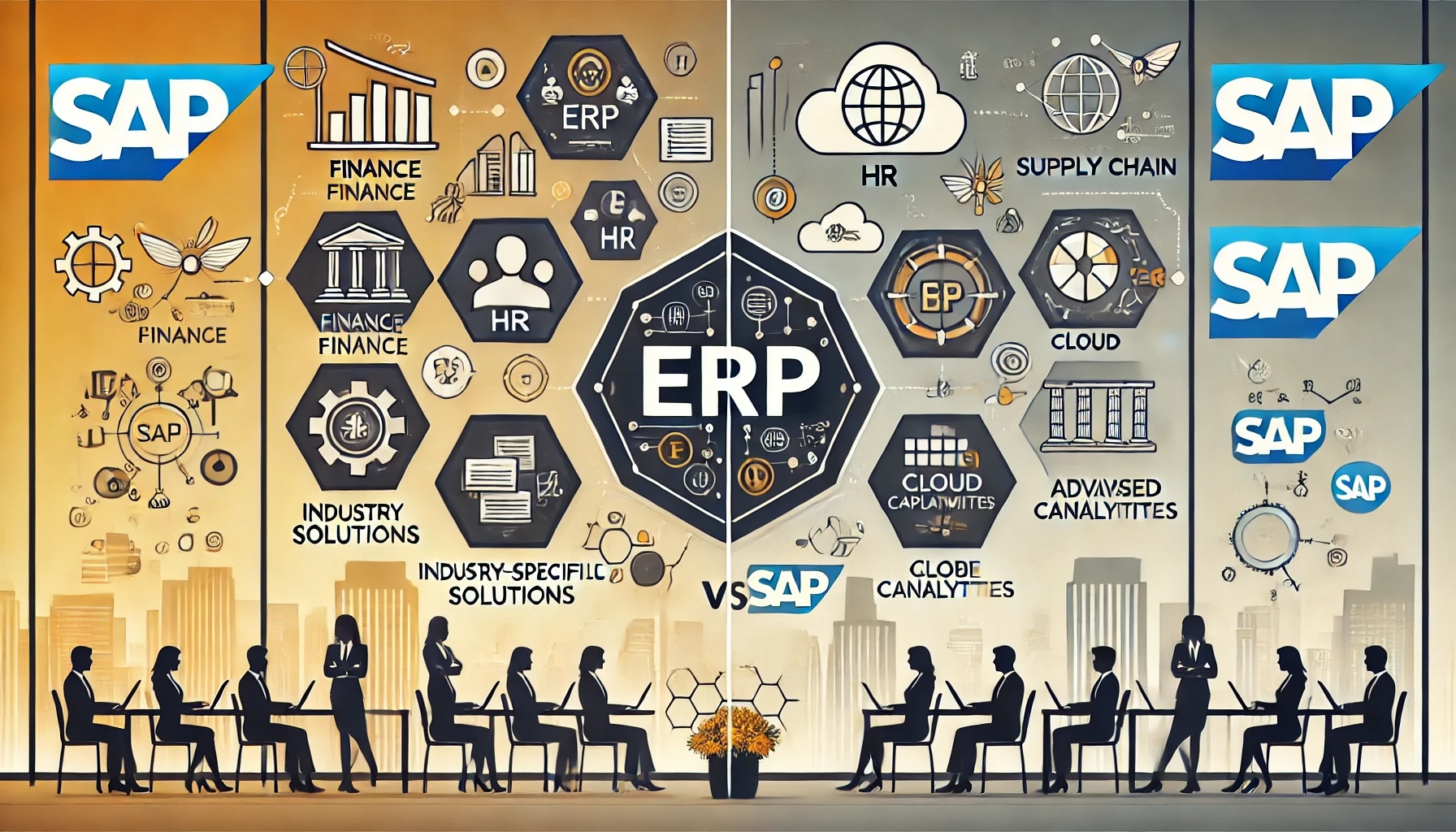Oracle Netsuite vs SAP Business One: A Comprehensive Comparison

In the world of enterprise resource planning (ERP) software, choosing the right solution can be a daunting task. Two of the most popular options for small to medium-sized businesses are Oracle Netsuite and SAP Business One. In this blog, we will delve into a detailed comparison of “Oracle Netsuite vs SAP Business One” to help you make an informed decision.
What is Oracle Netsuite?
Oracle Netsuite is a cloud-based ERP solution that offers a suite of integrated applications to manage various aspects of a business, including accounting, inventory, customer relationship management (CRM), and e-commerce. Known for its scalability and flexibility, Netsuite is designed to grow with your business.
What is SAP Business One?
SAP Business One is an ERP solution designed specifically for small and medium-sized enterprises (SMEs). It provides comprehensive tools to manage financials, operations, and customer relationships. SAP Business One is available on-premise, on-demand, and powered by SAP HANA for advanced analytics.
Key Features Comparison
Functionality
- Oracle Netsuite: Offers extensive functionality across multiple business processes. Its core features include financial management, CRM, e-commerce, inventory and order management, and human resources.
- SAP Business One: Focuses on core business functions such as accounting, sales, and purchasing, inventory management, production planning, and project management. It also offers powerful analytics through SAP HANA.
Deployment
- Oracle Netsuite: Fully cloud-based, meaning it can be accessed from anywhere with an internet connection. This offers flexibility and reduces the need for on-site IT infrastructure.
- SAP Business One: Provides multiple deployment options, including on-premise, cloud, and hybrid models. This allows businesses to choose the best fit for their IT strategy and budget.
Customization
- Oracle Netsuite: Highly customizable with SuiteScript and SuiteFlow, allowing businesses to tailor the system to their specific needs without extensive coding.
- SAP Business One: Also customizable, but it may require more technical expertise and involvement from SAP partners for extensive modifications.
Integration
- Oracle Netsuite: Integrates seamlessly with other Oracle products and third-party applications through APIs and pre-built connectors.
- SAP Business One: Offers integration capabilities through its Integration Framework, which connects with other SAP solutions and third-party applications.
User Interface
- Oracle Netsuite: Known for its user-friendly and intuitive interface, which can be customized to suit different user roles.
- SAP Business One: The interface is straightforward but may appear outdated to some users. However, it is functional and efficient for business operations.
Pricing
- Oracle Netsuite: Subscription-based pricing model, which can vary depending on the number of users and modules required. It is generally considered more expensive but offers a high return on investment.
- SAP Business One: Also follows a subscription model but offers a more predictable pricing structure, often making it more affordable for small businesses.
Implementation and Support
- Oracle Netsuite: Implementation can be complex and time-consuming, often requiring assistance from Netsuite consultants. Support is available through Oracle’s customer service and extensive online resources.
- SAP Business One: Implementation is relatively quicker, especially for the on-premise version. SAP provides robust support through its network of partners and an active user community.
Conclusion
Choosing between Oracle Netsuite and SAP Business One depends largely on your business size, industry, and specific needs. If you require a highly scalable, cloud-based solution with extensive functionality, Oracle Netsuite might be the better choice. On the other hand, if you are looking for a cost-effective, customizable ERP with multiple deployment options, SAP Business One could be more suitable.
Both systems have their strengths and can significantly enhance business operations. Evaluate your business requirements, budget, and long-term goals to determine which ERP solution aligns best with your organization.
To compare these ERP solutions and many more, you can use our new AI-powered Compare ERP tool. It’s free to use and you get a guaranteed discount on your first year’s licence fees with a referral from Compare ERP.









